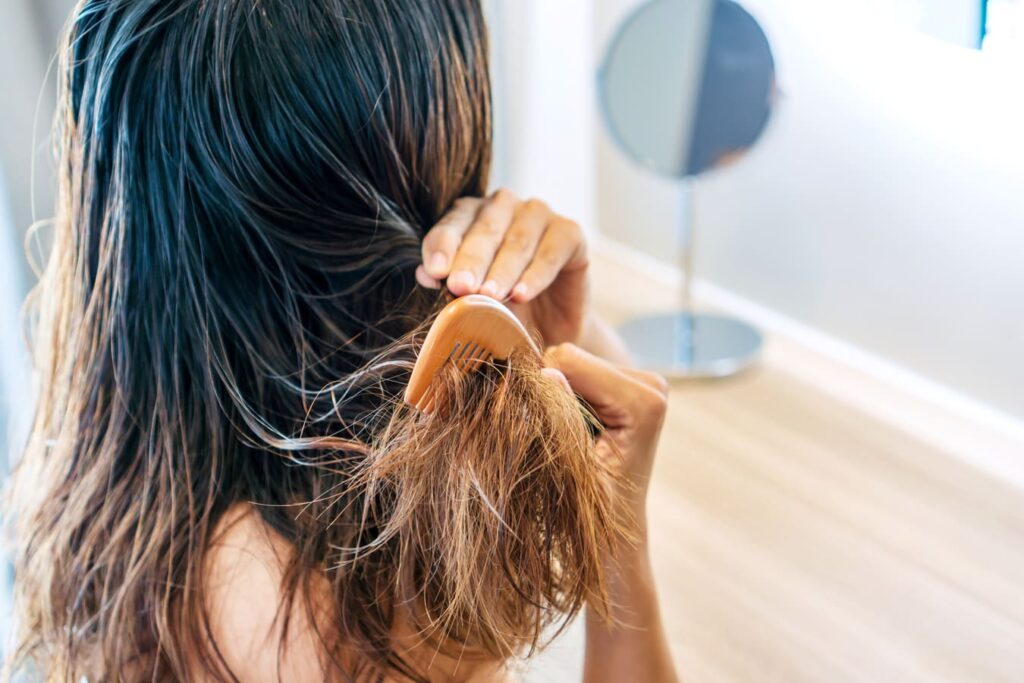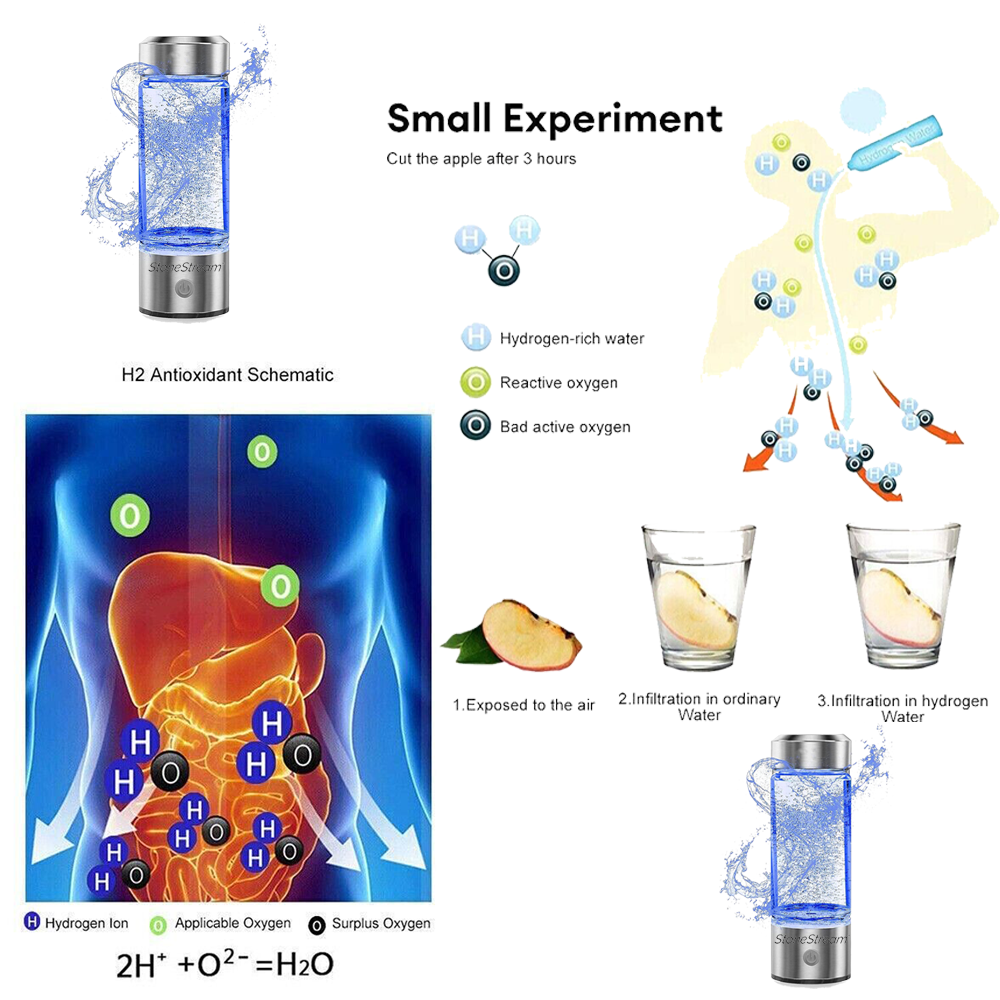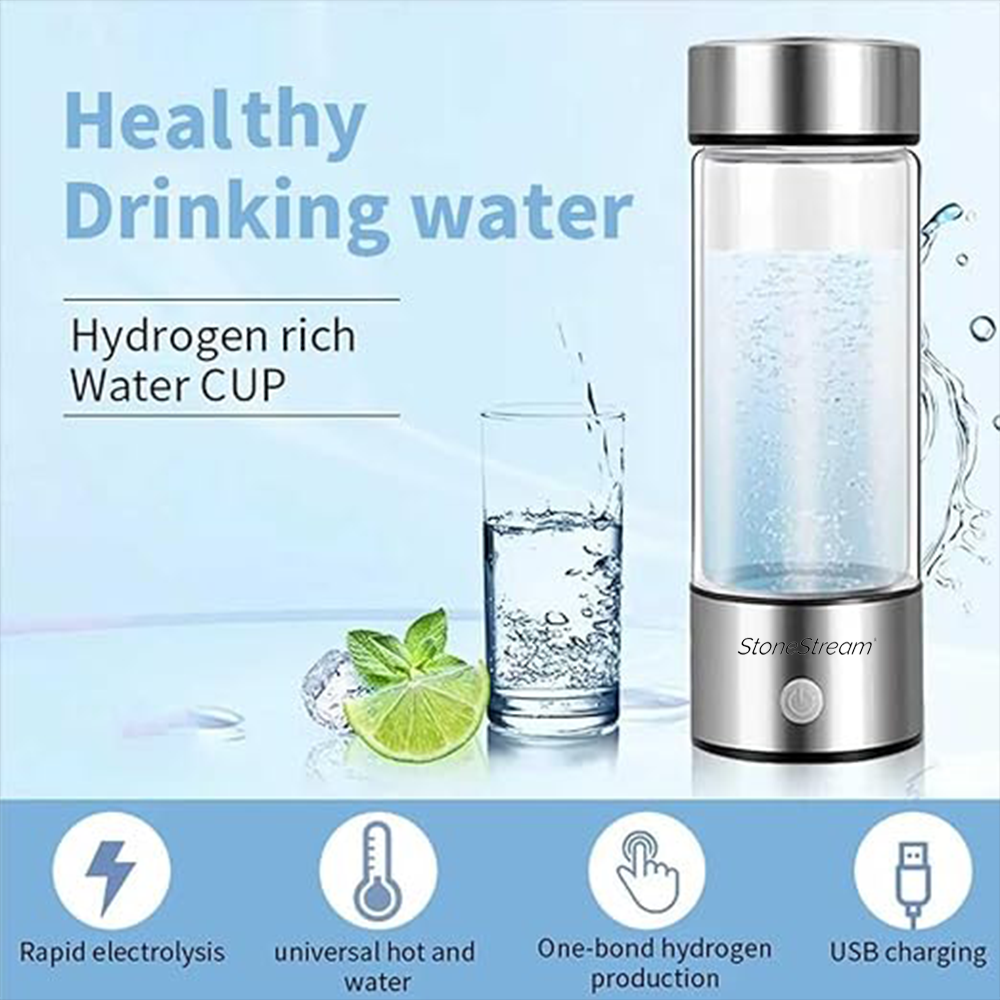Is that you making those squealing sounds in the bathroom? Or is that your shower whistling? It's not too uncommon to encounter your shower head whistling, although it might certainly seem bizarre and a little scary.
For most people, the sound of a shower head that's leaking or whistling is equal parts irritating and confusing. "How do I stop my shower head from whistling?" you must wonder, deafened by the shrill sounds you hear every time you turn your shower on. You might be tempted to just ignore the squealing sounds and blast music from your phone to drown out the whistles. Do not! It's a bad idea to ignore a whistling shower head because it could be indicative of a much larger problem that might progressively get worse if not fixed at an earlier stage.
But before you go tearing out your shower head in frustration, stop and read on. Chances are, all you need is a quick and easy fix. Let's take a look at the 6 reasons why your shower head is whistling and how to fix them.
1. Your shower head is loose
To fix this issue, all you need to do is tighten the connection point. Make sure to use a wrench or pliers so that you don't strip the threads. Once the shower head is hand-tight, use the wrench or pliers to give it an extra quarter turn. That should do the trick and stop the annoying whistling sound.
2. The water pressure is too high

Your shower head might be whistling because the water pressure is too high and the shower head isn't meant for it. When water pressure is too high, it can cause the water to vibrate and create a high-pitched sound. If you have ever heard a teakettle whistle, it is the same principle. There are a few ways to fix this problem.
One way is to install a water pressure regulator. This will help to reduce the amount of water pressure coming into your home, and therefore, reduce the amount of whistling from your shower head.
Another way to fix a whistling shower head is to clean the aerator. The aerator is the small screen at the end of the shower head that helps to break up the water into small droplets. Over time, this screen can become clogged with minerals and other debris, which can cause the water pressure to increase and create a whistling sound. To clean the aerator, simply remove it from the shower head and soak it in vinegar overnight. In the morning, rinse it off and reattach it to the shower head.
If neither of these solutions works, you may need to replace your shower head. The StoneStream EcoPower shower head (which is the original mineral shower head) is known for its 200% increased water flow but it makes sure that there is no whistling sound, thanks to its innovative design and sturdy build.
At this point, the terms "water pressure" and "water flow" might seem confusing and you must have noticed that they are often used interchangeably in the shower industry. Here's the difference between the two terms and an explanation regarding how the StoneStream EcoPower shower head increases water flow velocity.
The StoneStream EcoPower shower head also comes with 3 different spray settings so that you can adjust the water flow according to your needs and enjoy less water and more power — all without any annoying whistling sounds.
3. The washers in your shower head need to be replaced
If your shower head is still whistling after you've tightened the connection and cleaned the aerator, it's time to check the washers. Over time, the washers in your shower head can become worn out or damaged. When this happens, they are no longer able to create a water-tight seal, which can cause water to come out and create that annoying whistling sound. Plus, they will lead to a severely leaking shower head that wastes a lot of water and causes a mess.
4. There's a hole in your shower head
Another possible reason for a whistling shower head is a hole or crack in the fixture itself. This can happen over time due to normal wear and tear and in some cases, due to manufacturer defects. If there is a hole in the shower head, water will leak out and create a whistling sound. Plus, your water bill will be higher because you're essentially paying for water that is going down the drain, thanks to your leaking shower head.
If you have a hole or crack in your shower head, it is a sign that you will need to replace it with a new one. This time around, choose a shower head that is meant for high water flow, such as the StoneStream EcoPower. The EcoPower shower head is designed to resist limescale, mineral buildup, rust, and corrosion as well, so it will last longer and won't develop holes or cracks that can cause whistling.
5. Your shower head, shower hose, or shower pipe is clogged

We touched upon this point before, but now we'll look at it in depth. If your shower head is clogged or blocked, it can cause whistling or squealing sounds because air is being forced through a space that's too small for it. A clogged shower head can be due to mineral deposits, hard water, mould, or debris.
If you live in a hard water area, you may notice that your shower head becomes clogged more quickly. To clear a clogged shower head, remove it from the shower and soak it in vinegar overnight. In the morning, rinse it off and reattach it to the shower head. Here's a video that explains how you can clean your shower head properly.
Note that it's important to clean and unblock it regularly, and not just when a problem arises! A shower head is a breeding ground for mould and bacteria, so make its regular cleaning a part of your household chores.
If you can't remove your shower head because it's wall-mounted, simply tie a plastic bag filled with vinegar around the head with a rubber band. Make sure the shower head is fully submerged! Remove the bag after a few hours and let the shower run to get rid of the vinegar and debris.
If your shower head is still clogged after soaking it in vinegar, you may need to use a toothbrush to remove the debris. Once you have cleared the clog, reattach the shower head and turn on the water to see if the whistling noise has stopped.
If your shower head is still whistling after being cleaned, then your shower hose might be the culprit. A kinked or damaged shower hose can also cause a whistling or squealing noise. To fix this, simply remove the shower head and check the hose for any damage. If you see any cracks or holes, it will need to be replaced with a new shower hose.
Flexible Shower Hose for Handheld ShowerHead - Chrome

Buy Now
If the hose is just kinked, straighten it out and screw the shower head back on. If you can see limescale deposits and other debris on the inside and outside of the shower hose, then remove the entire thing and soak it in a big bowl of vinegar overnight. Here's how to remove or change a shower hose.
If your shower head is still whistling (annoying, we know!), then check the shower pipe (or the shower arm). This is the pipe that is attached to the shower head and the wall. Remove the shower head and take a close look at the pipe. If it is corroded, damaged, or has any holes, then it will need to be replaced with a new shower pipe or shower arm. If you're not sure how to replace the shower pipe, we recommend calling a professional plumber to do it for you.
Chrome Shower Arm for Fixed Wall-Mount Shower

Buy Now
If the shower pipe is simply dirty, then tilt it and pour in some vinegar. Leave it overnight. The next morning, use a toothbrush to remove the hard-to-dislodge debris. Tilt the pipe back to its normal position, reattach the shower head, and let the water run for a bit to get rid of the vinegar and the dirt. The whistling should be gone now!
6. Your shower valves are worn out
The valves in your shower head can also cause a whistling noise if they're damaged or worn out. If you have a single-valve shower, then there's only one valve to worry about. But if you have a dual-valve shower (one for hot water and one for cold water), then there are two valves that need to be in good working condition.
To test if the shower valves are the problem, turn off both valves and see if the whistling noise stops. If it does, then you will need to replace the shower valves. If you have a shower head in your bathtub, then you also need to check the diverter valve. This valve is responsible for directing the water either to the shower head or the bathtub faucet. If this valve is damaged, then water can leak out and cause an awful whistling noise as well as a leaking shower head. Remember that the whistling might not be too loud and the leak might not be too noticeable — so keep an eye and an ear out for them.
To replace a damaged or worn-out shower valve, you will need to shut off the main water supply to your home. Once the water is turned off, remove the old valve and take it to your local hardware store to find an exact replacement. Once you have the new valve, unscrew the old one and screw in the new one. Make sure it's tight so there are no leaks. Turn on the main water supply and check all the valves to make sure they're working properly. The whistling noise should be gone now!
More often than not, it's easy to solve the problem of a whistling shower head using tried-and-tested DIY techniques like the ones we've mentioned above. However, if you've followed all of these steps and the whistling noise is still happening, then we recommend calling a professional plumber to take a look. There might be an underlying issue that's causing the whistling noise, and a plumber will be able to diagnose and fix the problem quickly.
Plus, in general, make sure all your shower accessories — from shower heads to shower arms, washers to valves — are of good quality, so as to avoid problems like the ones we've discussed in this article.
Enjoy High-Quality Shower Heads with StoneStream

A whistling shower head highlights a deeper problem — that of shower heads that are made of inferior materials and not built to last. If you have a low-quality shower head, you are likely to encounter other issues as well, such as leakage, sudden low pressure, musty smells, and frequent limescale buildup.
To avoid constantly replacing your shower head or dealing with a noisy one, invest in a high-quality shower head that won't let you down. The StoneStream EcoPower shower head is built with premium materials and comes with a 1-year warranty. It is meant to withstand frequent use and possesses unique water filtering and softening abilities that aren't found in ordinary shower heads. These ensure that 1) you get clean and soft water no matter where you live and 2) your shower head lasts for a long time because it doesn't have to deal with the downsides of dirty water, hard water, and limescale. Ours is the original mineral shower head that's good for you, your bathroom, and the planet!
Take a look at some of the other benefits of the StoneStream EcoPower shower head that have made it immensely popular with over 200,000 customers:
-
3 different spray settings (rainfall, jetting, massage)
-
200% increased water flow velocity that is powerful yet gentle
-
Eco Stop button for convenience and to prevent water wastage
-
35% reduced water usage, so you save on your water and energy bill
-
Can be installed in under a minute
-
Easy to clean spray holes that just have to be wiped
-
Universally compatible, fits in all showers (indoors, outdoors, RVs)
-
Comes in Clear-Chrome and Matte Black (due to popular demand!)
-
Handheld, wall-mounted, and combo variants to suit any bathroom
Plus, we have a range of fantastic shower accessories — from non-slip shower mats to squeegees, replacement filters to shower hoses — that will fit in any bathroom and make it a luxurious, functional, and hygienic space. You'll also be pleased to know that we offer free shipping on all orders.
So, happy showering! Don't settle for an inferior shower head — your shower room is where you spend some of the most important minutes of your day, and so it deserves the best. Tackle that whistling shower head problem today and make sure your future showers are comfortable and safe.



